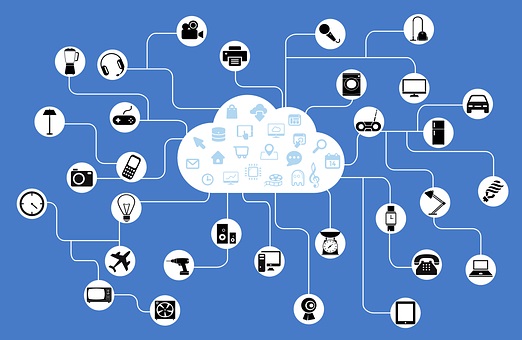Survey: 61% of Americans Struggle to Pay Broadband Bills
More than one in three (39%) respondents have had to cut personal expenses in order to pay their monthly internet bill, according to U.S. News & World Report

The professional video industry's #1 source for news, trends and product and tech information. Sign up below.
You are now subscribed
Your newsletter sign-up was successful
WASHINGTON, D.C.—A new national survey from U.S. News & World Report's 360 Reviews finds that many U.S. consumers are struggling to pay increasingly expensive broadband bills and that many are dissatisfied with the speeds their service offers.
The survey of 3,500 U.S. adults who pay for home internet service found that a majority (61%) of U.S. consumers struggled to pay their monthly internet bill due to inflation’s impact on the cost of household items and that 39% respondents have had to cut personal expenses in order to pay their monthly internet bill.
“The survey makes it clear that most U.S. households are paying more for internet service today than when they first signed up,” said Erica Beimesche, senior home services editor, 360 Reviews. “This new consumer survey data also highlights the ways American families are struggling to keep up with the escalating costs to stay connected.”
The study found that prices for Internet access are rising to painful levels for some consumers. More than half (53%) reported paying between $20 and $60 per month for internet service when they signed up with their current internet service provider (ISP); today, close to that number (48%) now pay between $41 and $80 per month for service from that same ISP.
The impact of rising costs for broadband services comes at a time when internet access has become an essential part of life. Americans rely on internet access for a wide range of important daily activities, including work, school, paying bills, and staying in touch with loved ones, the researchers said. “For the 85% of Americans going online every day – including 31% who say they are online “almost constantly” – internet access serves as their lifeline,” the study stressed.
This may help explain why almost one-third of Americans without broadband say cost is the obstacle standing in their way, the study said. Affordable broadband is particularly scarce in rural and/or low-income areas, the researchers noted.
In addition to the high cost of broadband access, the study also found that consumers aren’t happy about the speeds they have.
The professional video industry's #1 source for news, trends and product and tech information. Sign up below.
“After completing an internet speed test, most respondents (64%) report having a download speed of at least 101 megabits per second (Mbps) – which means that more than one-third (36%) experience a download speed of 100 Mbps or less,” the study found. “The Federal Communications Commission says broadband capability requires consumers to have access to actual download speeds of at least 25 Mbps – and a surprising number of U.S. internet users aren’t even getting that. After completing the internet speed test, 8% of our respondents report having a download speed less than 25 Mbps – meaning that nearly one in 10 households doesn’t actually have broadband internet service.”
Upload speeds typically tend to be slower than download speeds, and this is illustrated in our survey findings. One-quarter (25%) of respondents report having an upload speed of 10 Mbps or less, although the majority (75%) report having an upload speed of at least 11 Mbps, the study found.
“The most common download speeds are: 101-300 Mbps (31%), 25-100 Mbps (28%), and 301-1,000 Mbps (25%),” the study said. “The most common upload speeds are: 21-50 Mbps (30%), 11-20 Mbps (25%), and greater than 50 Mbps (20%).”
Overall, the survey found that 45% do believe that the current monthly cost they pay their ISP is worth the internet speed they receive, more than one-quarter (28%) are unsatisfied with the speeds they get for the price, and almost the same amount (27%) are unsure if what they pay for internet is worth the speed they receive.
The survey also found that more than half (62%) of respondents would pay more for faster internet speeds, where available, with 45% willing to pay $5 to $10 more a month and 17% willing to pay $11 to $20 more per month.
The full study is available here.
George Winslow is the senior content producer for TV Tech. He has written about the television, media and technology industries for nearly 30 years for such publications as Broadcasting & Cable, Multichannel News and TV Tech. Over the years, he has edited a number of magazines, including Multichannel News International and World Screen, and moderated panels at such major industry events as NAB and MIP TV. He has published two books and dozens of encyclopedia articles on such subjects as the media, New York City history and economics.

